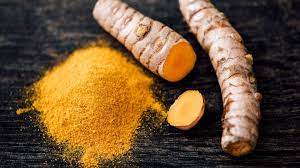Inflammatory bowel disease (IBD) is a debilitating and sometimes life-threatening condition that affects millions of people worldwide. Until recently, there were limited treatments available for this condition, leaving many sufferers feeling hopeless. But a recent breakthrough has emerged in the form of curcumin, a compound found in the spice turmeric, which has shown promising results for those with IBD. In this blog post, we’ll be discussing the research into the potential of curcumin as a treatment for ulcerative colitis and Crohn’s disease, and why it may be a breakthrough for those suffering from these chronic conditions.
What is Curcumin?
Curcumin is a type of plant-based compound known as a polyphenol. It’s most commonly found in the spice turmeric, a staple of Indian cuisine. Turmeric contains up to 5% curcumin by weight, and has been used in traditional Ayurvedic medicine for centuries.
In modern times, curcumin has been studied extensively for its potential health benefits, with the majority of the research focusing on its anti-inflammatory properties. Curcumin has been found to inhibit the activity of several pro-inflammatory enzymes and cytokines, which are believed to contribute to the development of inflammatory bowel disease (IBD).
As a result, many researchers believe that curcumin may be a promising treatment option for IBD. So far, there have been several studies conducted that show positive results, though further research is needed to fully understand the effects of curcumin on IBD.
How does Curcumin work?
Curcumin is the active compound in turmeric, an herbal plant long used in traditional Indian and Chinese medicine. This natural compound has a growing body of research demonstrating its potential to relieve symptoms of inflammatory bowel diseases (IBD) like ulcerative colitis and Crohn’s disease. But how exactly does curcumin work?
Recent studies have shown that curcumin may reduce inflammation and relieve symptoms of IBD. It works by reducing the production of pro-inflammatory cytokines, which are molecules that trigger an immune response. In other words, curcumin helps to suppress the body’s natural inflammatory response, leading to less severe symptoms for those with IBD.
Curcumin also has an antioxidant effect, meaning it can help protect the body from free radical damage. Free radicals are unstable molecules that can cause cell damage and contribute to chronic inflammation. By scavenging these free radicals, curcumin may help reduce overall inflammation in the body.
Finally, curcumin can boost levels of certain enzymes in the body. Enzymes are substances that help speed up chemical reactions and are essential for metabolism. For example, curcumin has been shown to increase levels of the enzyme glutathione, which is important for protecting cells from oxidative stress.
Overall, the research on curcumin is promising and suggests that it may be a safe and effective natural treatment for IBD. However, it’s important to remember that more studies are needed to confirm its efficacy and safety. Talk to your doctor before taking any supplements or herbs as part of your IBD treatment plan.
What does the research say about Curcumin and IBD?
For those suffering from inflammatory bowel diseases (IBD) such as ulcerative colitis and Crohn’s disease, the symptoms can be debilitating. These chronic illnesses cause pain, fatigue, and diarrhea, often leading to significant disruption of daily life. Fortunately, recent research has found potential relief in an unexpected source: the spice turmeric.
The active compound in turmeric is curcumin, which has been studied for its anti-inflammatory properties. Studies have shown that curcumin is an effective treatment for a range of medical conditions, including cancer, heart disease, diabetes, and arthritis. But what about IBD?
Recent studies on curcumin and IBD have been promising. A double-blind, placebo-controlled trial published in 2014 found that subjects given curcumin experienced significantly less abdominal pain than those given a placebo. In addition, a systematic review of trials published in 2017 concluded that curcumin could be an effective alternative treatment for IBD.
While more research is needed to understand the full extent of the potential benefits of curcumin for IBD, the existing evidence suggests that it may be an effective way to manage the symptoms of IBD. As always, however, it’s important to talk to your doctor before beginning any new treatments.
Are there any side effects of taking Curcumin?
While Curcumin has shown great promise in treating Ulcerative Colitis and Crohn’s Disease, it is important to be aware of any potential side effects before starting a treatment plan. Although the research conducted so far indicates that Curcumin is a safe supplement to take, there are some side effects that should be taken into consideration.
The most common side effects reported from taking Curcumin are gastrointestinal issues, such as nausea, bloating, and diarrhea. If these symptoms occur, it is advised to reduce the dosage or discontinue use. Other potential side effects include an allergic reaction, stomach ulcers, headaches, dizziness, and skin rashes.
It is important to note that the side effects mentioned above are rare and typically do not occur with daily use. However, if you experience any side effects or symptoms, it is important to stop taking Curcumin and speak to your doctor.
It is also important to talk to your doctor before taking any supplement, especially if you have any underlying medical conditions or take medications. It is best to discuss any possible interactions between Curcumin and other drugs before starting a treatment plan.
How can I take Curcumin?
Curcumin is a natural substance found in turmeric, a plant that’s been used for centuries in traditional medicine. This powerful anti-inflammatory compound has become increasingly popular for treating inflammatory bowel diseases (IBD), such as ulcerative colitis and Crohn’s disease. While research is ongoing, there is evidence that curcumin can be helpful for managing symptoms of IBD.
If you’re considering trying curcumin for IBD, the first thing to consider is how to take it. Generally, curcumin is available in pill form or as an extract or powder that can be added to food or beverages. When choosing a curcumin supplement, make sure you look for one that contains a high concentration of active curcuminoids, which are the components of turmeric that have therapeutic benefits.
Another important factor to consider when taking curcumin is dosage. The amount you should take depends on several factors, including your age, weight, and the severity of your symptoms. Generally, taking 500-2,000 mg of curcumin per day is considered safe, though it may be beneficial to talk to your doctor about the best dosage for you.
In addition to supplements, you can also incorporate more curcumin into your diet. Adding turmeric to recipes like soups, smoothies, and sauces can help you get more of this nutrient-rich compound into your diet. If you’re not a fan of the flavor, there are also turmeric supplements available in capsule form.
While more research needs to be done, there is evidence that curcumin may help with the management of IBD symptoms. If you’re considering adding curcumin to your treatment plan, it’s important to speak with your healthcare provider first to determine the best way to take it and what dose might be right for you.



